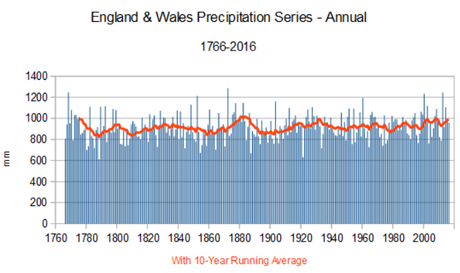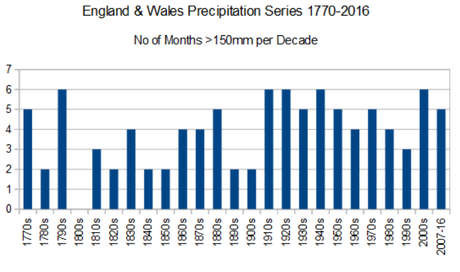The Guardian appears to be taking this expression literally.
Guardian reader's letter, May 2019:
Weather forecasts are ignoring the drought in England
Paul Brown is spot-on in his criticism of how weather forecasts and presenters ignore the continuing drought (Weatherwatch, 28 May). It is as if they are in a parallel universe where the climate emergency does not exist. Wildlife, gardeners, farmers and all who care about the environment are desperate for proper rainfall, especially in central and southern England.
Linda Lennard, St Albans
Guardian article, Feb 2020:
With every flood, public anger over the climate crisis is surging
Sometimes it has felt as if the rain might never stop. These storms have gone beyond the point of simply being storms now, each blurring into the next to create a strangely end-of-days feeling. Everything is freakishly sodden and swollen, and while the rural flood plain on which I live fortunately hasn’t flooded anything like as badly as some, the rivers are rising alarmingly.
Yet still the lashing winds and biblical downpours keep coming. Suddenly the 40 Days of Action campaign that Extinction Rebellion (XR) will launch on Ash Wednesday (26 February), encouraging people to reflect on the environmental consequences of their actions in a kind of green Lent, feels ominously well named.
So what is it chaps, wetter or drier? (Or would you always have this impression if you compare a month in Spring with one in Winter?)
Oh, surprise surprise, it's neither.
Paul Holmewood summarised rainfall charts for England and Wales 1766 to 2016, and there is no discernible trend, annual rainfall in most years was between 800mm and 1,000 mm:

If you really squint at the ten-year running average, there appears to be a slight upwards trend from the early 1900s (about 850mm) to the 2010s (about 950mm), but most years stayed within the 800mm - 1,000mm range.
As he says himself:
By far the wettest month was October 1903, when 218mm fell. The wettest month in recent years was November 2009, with 192mm.
Again, I can see no evidence of anything unusual occurring in the last decade or so. There is a suggestion, though, that very wet months were not as common prior to the 20thC. This can be better seen by looking at the number of months >150mm per decade. The latest ten years is shown for comparison:

On average, it is fair to say that it is a little bit wetter now than it used to be in the early 19thC. But above all it is the year to year variability which dominates the record, just as it always has.
As to actual 'floods', the chances are these are down to deforestation and dredging/straightening of watercourses upstream; and more urbanisation (building over large contiguous areas, especially in areas prone to flooding) and not enough dredging/straightening of rivers downstream.
